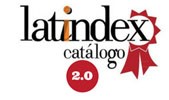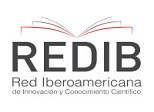Development of Local Cultural Identity in the Training of Elementary Education Teachers
DOI:
https://doi.org/10.69890/hallazgos21.v9i3.667Keywords:
Local cultural identity, pedagogical approach, teacher training, artistic heritageAbstract
This study, carried out at the University Center of Banes, Holguín, Cuba, in 2023, investigates the need to strengthen local cultural identity in training future elementary education teachers. Using a qualitative approach with a sample of 69 students, weaknesses were identified in the current training, particularly in managing the learning processes. The research proposes a pedagogical conception that integrates identity elements of the local sociocultural context and artistic heritage, promoting creativity, interaction, and the development of contextualized and culturally sensitive educational practices. The results suggest that integrating local cultural identity into teacher training can positively impact education and cultural development in the territory.
References
Abreu-Valdivia, O., Pla-López, R., Naranjo-Toro, M., & Rhea-González, S. (2021). La pedagogía como ciencia: objeto de estudio, categorías, leyes y principios. Información tecnológica, 32(3), 131-140. http://dx.doi.org/10.4067/S0718-07642021000300131
Asamblea Nacional del Poder Popular República de Cuba. (2019). Constitución de la República. Editorial Universitaria. https://www.parlamentocubano.gob.cu/sites/default/files/documento/202111/Constitución-Cuba-2019.pdf(gob.cu)
Asamblea Nacional del Poder Popular República de Cuba. (2022). Ley General de Protección al Patrimonio Cultural y al Patrimonio Natural. http://media.cubadebate.cu/wp-content/uploads/2022/05/PL-Patrimonio-Cultural_NUEVA-VERSION.pdf
Gordillo, S., González, M., & Batista, A. (2021). Promoción y rescate de tradiciones culturales locales en estudiantes de educación básica de la Universidad Nacional de Loja. Revista Universidad y Sociedad, 13(1), 167-176. http://scielo.sld.cu/scielo.php?script=sci_arttext&pid=S221836202021000100167&lng=es&tlng=es
Guamán, V., Espinoza, E., León, J., Ugarte, M., & Peña, G. (2020). La enseñanza de la historia una herramienta clave para la construcción de la identidad nacional. Revista Universidad y Sociedad, 12(5), 492-499. http://scielo.sld.cu/scielo.php?script=sci_arttext&pid=S221836202020000500492&lng=es&tlng=es
Huepa, D., Sánchez, M., & Sánchez, B. (2023). La formación y evolución de la identidad cultural cubana y el desempeño profesional pedagógico. Varona. Revista Científico Metodológica, (77). http://scielo.sld.cu/scielo.php?script=sci_arttext&pid=S1992-82382023000200022&lng=es&tlng=es.
Martínez, V., Best, A., & González, E. (2021) La formación de la identidad cultural del estudiante desde las clases de educación artística. Revista Didáctica y Educación, XII(2), 18-31. http://dialnet.unirioja.es/servlet/artículo?código=7922021
Matías, A., & Hernández del Cristo, S. (2018). El reto de la identidad para la educación como institución social. Revista Educación, 42(2), 97–108. https://doi.org/10.15517/revedu.v42i2.23598
Montesó, J. (2016) La teoría histórico-cultural de Vygotski desde una perspectiva fenomenológica. Anuario de la Sociedad Española de Fenomenología. Investigaciones Fenomenológicas, 13(13), 107-126. https://doi.org/10.5944/rif.13.2016.29617
Pineda-Alfonso, J. A., & Duarte Piña, O. M. (2020). Las concepciones pedagógicas del profesorado universitario: un punto de partida para el cambio docente. Revista Educación XX1, 23(2), 95-118. https://doi.org/10.5944/educXX1.25409
Published
How to Cite
Issue
Section
License
Los artículos enviados a la Revista Científica Hallazgos21 deberán ser totalmente originales e inéditos.
Los autores son los responsables de los textos y las imágenes incluidas en los artículos y no necesariamente reflejan el pensamiento de la editorial o de la Pontificia Universidad Católica del Ecuador, Sede Esmeraldas (PUCESE).
Los autores disponen cederle a la Revista Científica Hallazgos21 todos los derechos inherentes para la edición, publicación y distribución o divulgación del mismo.
Se autoriza a las revistas firmantes de los acuerdos de Encuentros de Revistas Latinoamericanas para reproducir en parte o totalmente los artículos con la sola mención de la fuente claramente señalada.







